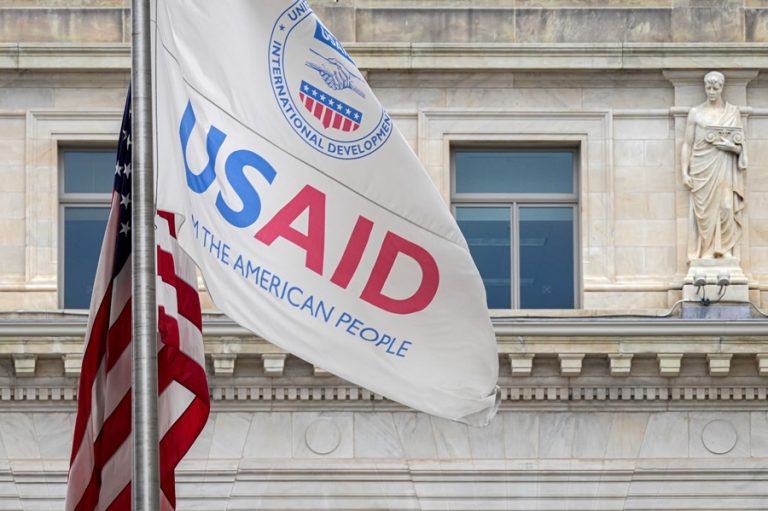
The Trump administration has completed its unprecedented purge of the U.S. Agency for International Development (USAID), dismantling over 5,200 of the agency’s 6,200 programs. The sweeping reform, led by Secretary of State Marco Rubio and Elon Musk’s Department of Government Efficiency (DOGE), has reduced USAID’s operations by 83%, marking a dramatic shift in U.S. foreign aid policy.
Rubio announced the move on Monday via a post on X, confirming that only 18% of USAID programs would continue under the State Department’s control. He praised the “hardworking staff” who executed what he called an “overdue and historic reform” in foreign aid.
However, critics of this decision, especially Democrats, have argued that this drastic cut will have far-reaching consequences, particularly for developing countries that rely heavily on U.S. aid for healthcare, humanitarian assistance, and development projects.
Register for Tekedia Mini-MBA edition 19 (Feb 9 – May 2, 2026).
Register for Tekedia AI in Business Masterclass.
Join Tekedia Capital Syndicate and co-invest in great global startups.
Register for Tekedia AI Lab.
The Impact on Developing Countries
The suspension of USAID programs is expected to create a humanitarian vacuum, especially in countries where the U.S. had been a primary provider of aid. USAID has historically funded life-saving programs, including emergency nutrition for malnourished children, clean drinking water in refugee camps, and epidemic control measures in vulnerable regions.
With the axing of 83% of its programs, critical support structures in nations like Sudan, Yemen, Afghanistan, and parts of sub-Saharan Africa are in jeopardy. Health programs that provide vaccines, maternal care, and treatment for diseases like HIV/AIDS, tuberculosis, and malaria face abrupt termination. The sudden halt to clean water initiatives and food distribution networks could worsen crises in war-torn and disaster-hit regions, leading to a rise in mortality rates, malnutrition, and waterborne diseases.
China’s Opportunity to Expand Influence
The end of USAID’s widespread humanitarian operations opens the door for China to expand its influence. Beijing has increasingly positioned itself as an alternative to Western aid through its Belt and Road Initiative and other development programs. While Chinese aid often comes with economic and political strings attached, many countries may have no choice but to accept Beijing’s assistance to fill the void left by the U.S.
Legal and Political Fallout in the U.S.
Back home, the Trump administration’s actions have sparked a flurry of legal challenges. Many lawmakers and aid organizations argue that shutting down congressionally-funded programs without approval is illegal. The sudden termination of contracts has left thousands of U.S. and international workers stranded, awaiting back payments and travel expenses.
Democratic lawmakers have criticized the administration’s approach as reckless and short-sighted. “Foreign aid is not just about helping others—it is about promoting stability and security for the United States,” said Senator Chris Coons, a prominent advocate for international development.
The Biden administration had significantly bolstered USAID’s role in addressing global issues such as climate change, food security, and democratic governance. The sudden reversal of this policy direction has created confusion and uncertainty among aid groups and international partners.
What Survived? Lack of Transparency Fuels Confusion
Despite the widespread cuts, the administration has provided few details on which programs survived. The rapid pace of the shutdown, including mass emails to terminate thousands of contracts, has left aid organizations struggling to determine which services can continue.
Rubio’s statement that 18% of programs remain contradicts earlier claims by the State Department that over 90% of initiatives were being scrapped, highlighting inconsistencies in communication. Some lawsuits against the State Department allege that even life-saving programs that were promised immunity received termination notices, deepening mistrust between the government and aid groups.
A Dangerous Precedent for U.S. Diplomacy
The dismantling of USAID marks a stark departure from the U.S. tradition of using soft power to promote its values and interests abroad. For decades, American aid has been a cornerstone of global development strategies, not only saving lives but also fostering goodwill and stability. The abrupt shift toward a more isolationist stance risks alienating allies and undermining the U.S.’s global standing.
Republicans now believe that USAID has outlived its purpose, with some accusing Democrats of using the agency to force regime changes abroad, among other ills.
Against this backdrop, Republican leaders have indicated they want foreign assistance to focus narrowly on what they define as core national interests. However, Democrats warn that abandoning humanitarian aid could backfire by destabilizing regions and creating conditions for extremism and conflict.



